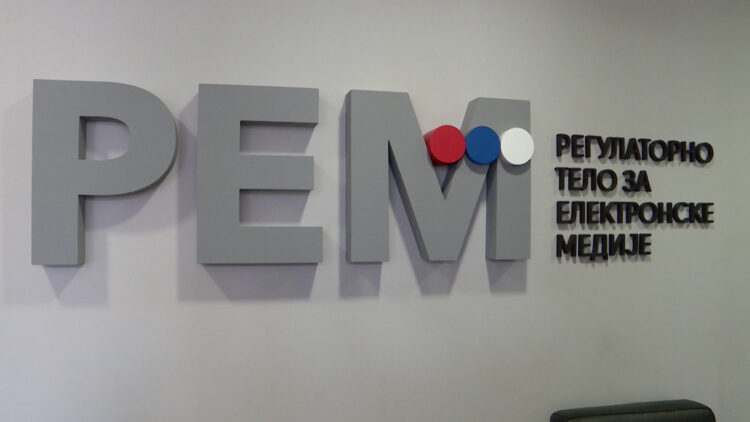As candidates participating in the process of electing members of the Council of the Regulatory Authority for Electronic Media (REM), we believe that responsibility toward the law and the public interest is an inseparable part of our future role.
That responsibility does not begin on the day of election but with the way we are chosen.
The ongoing process deviates from the legal framework and from the report of the Committee on Culture and Information of the National Assembly, which was adopted as the basis for conducting the harmonization procedure. The addition of new proposers in the category of national minority councils is contrary to that report, as well as to the letter and spirit of the law, and such a practice undermines trust in the procedure itself and in the institutions conducting it.
We expect the competent authorities to return the process within the boundaries of the law. Attached is an analysis of the relevant legal provisions related to the election of REM Council members and the authorized proposers in the category of national minority councils. This analysis establishes that the addition of new proposers has no legal basis.
The REM Council is a body that must defend the legality and integrity of the media landscape. Therefore, as candidates aspiring to participate in its work, we cannot remain silent in the face of clear violations of the law in the very process of its election.
Respect for the law is not a formality — it is the foundation of citizens’ trust in institutions.
Đorđe Vlajić, candidate of journalists’ associations
Gordana Predić, candidate of independent institutions
Antonela Riha, candidate of associations whose goals include the protection of freedom of expression
Dušan Aleksić, candidate of associations whose goals include the protection of children
Rodoljub Šabić, candidate of associations whose goals include the protection of freedom of expression
Mileva Malešić, candidate of journalists’ associations
Dubravka Valić Nedeljković, candidate of associations whose goals include the protection of children
Vanja Šibalić, candidate of universities in the Republic of Serbia
Mladen Matičević, candidate of associations of film and drama artists and associations of composers
Ljumturije Ameti, candidate of national minority councils
Muhedin Fijuljanin, candidate of national minority councils
Ira Prodanov Krajišnik, candidate of associations of film and drama artists and associations of composers
Legal Analysis of the Legitimacy of the Proposals by Three National Minority Councils and the Illegality of the Vote Held on October 21, 2025
- Legal Basis
The right of national minority councils to participate in the election of members of the Council of the Regulatory Authority for Electronic Media (REM) is governed by the following laws:
- Law on Electronic Media (Official Gazette of the Republic of Serbia, No. 92/2023, 51/2025), Articles 10, 13, and 14.
- Law on National Councils of National Minorities (Official Gazette of the Republic of Serbia, No. 72/2009, 20/2014 – Constitutional Court decision, 55/2014, 47/2018), Article 20
- Provisions on the Right to Nominate
According to Article 12, paragraph 1 of the Law on Electronic Media, members of the Council are nominated by associations whose goals are the protection of children and freedom of expression, universities, independent institutions, journalists’ and media associations, associations of film, stage and drama artists, associations of composers, churches, and national councils of national minorities.
This provision explicitly defines national minority councils as authorized nominators. The Law does not provide for the transfer of this right nor for the existence of a “coordination” body acting on their behalf.
Article 20 of the Law on National Councils of National Minorities provides:
“National councils shall submit to the competent service of the National Assembly a reasoned proposal for two candidates for a member of the Council of the Regulatory Authority for Electronic Media, in accordance with the procedure established by the law governing the election of Council members.
The proposal for two candidates of the national councils shall be reached by mutual agreement of the national councils.
The National Assembly, in a plenary session, shall elect one member of the Council of the Regulatory Authority for Electronic Media by voting.”
This provision establishes the obligation of the councils to submit proposals and to attempt to harmonize them “by mutual agreement,” but at the same time recognizes that the procedure takes place in accordance with the law governing the election of Council members — namely, the Law on Electronic Media, which as lex specialis regulates this process.
- Relationship and Hierarchy of Laws
- The Law on Electronic Media is the newer law (2023) and relates specifically to the election of REM Council members.
- The Law on National Councils of National Minorities is the older law (2009, amended in 2018) and regulates the general position of national councils.
According to the principles of lex posterior derogat legi priori (the newer law prevails over the older) and lex specialis derogat legi generali (the special law prevails over the general), the Law on Electronic Media takes precedence in the part relating to the election of REM Council members.
Article 20 of the Law on National Councils merely defines the obligation of the councils to cooperate but does not provide any legal basis for the participation of entities that are not authorized nominators under the Law on Electronic Media.
The Law on National Councils expressly refers to the Law on Electronic Media for the detailed procedure governing the election of REM Council members, thereby mandating the application of the latter in all procedural matters. This means that while the Law on National Councils sets general principles and the obligation of mutual agreement among councils, it defers to the Law on Electronic Media for the specific procedural framework and mechanisms of implementation.
- Procedure under the Law on Electronic Media
Article 20 of the Law on National Councils establishes the principle of mutual agreement among councils, while Articles 13 and 14 of the Law on Electronic Media operationalize this principle by prescribing the nomination process and the harmonization procedure when multiple candidates are proposed. This demonstrates that the Law on National Councils defines the obligation to reach an agreement, and the Law on Electronic Media provides the procedural mechanism through which such agreement is sought or achieved.
Article 14 of the Law on Electronic Media regulates the situation in which several authorized nominators submit more than two proposals:
“If the authorized nominators have submitted proposals for more than two candidates, the Committee’s Service, within seven days from the date of publication of the list of candidates and the list of organizations from Article 13 of this Law, shall determine the date for establishing a joint proposal of two candidates for a member of the Council.
The Committee’s Service shall provide the authorized nominators who have submitted more than two candidates with a venue for holding a meeting to establish a joint proposal of two candidates.”
From this provision it clearly follows that:
- only those authorized nominators who have previously submitted candidates have the right to participate in the harmonization meeting;
- the Committee’s Service has a technical, not discretionary, role — to provide logistical support, not to alter the circle of authorized nominators.
- Factual Situation and Breach of Law
During the procedure of October 21, 2025, the Expert Service of the National Assembly allowed, in addition to the three authorized national minority councils (Bosniak, Albanian, and Hungarian), the participation and voting of nine additional national minority councils that were not authorized nominators and had not submitted candidate proposals.
Such conduct constitutes a direct violation of Articles 13 and 14 of the Law on Electronic Media, because:
- only authorized nominators who participated in the nomination process have the right to vote;
- neither the Law on Electronic Media nor the Law on National Councils permits expanding the group of nominators after the list has been established by the Report of the Committee for Culture and Information (October 14, 2025).
Accordingly, the participation and voting of the nine councils that were not authorized nominators constitute null and void actions and render the entire procedure unlawful.
By acting beyond its powers, the Expert Service violated the principle of legality enshrined in Article 3 of the Constitution of the Republic of Serbia and Article 6 of the Law on General Administrative Procedure (applied analogously to actions of public authorities).
- Legal Status of the Coordination of National Minority Councils
The Coordination of National Minority Councils is not a legally recognized entity. No legal act acknowledges the term “Coordination of National Minority Councils” or grants it any legal status, competence, or authority to represent national councils in any procedure before state bodies.
Accordingly, the Coordination cannot act as an authorized proposer, nor as a body that makes decisions or submits a joint proposal on behalf of the national councils. Any decision arising from its actions has no legal effect and cannot be considered a lawful expression of the will of the national councils.
- Legal Consequences
- As a newer and more specific law, the Law on Electronic Media supersedes the earlier and more general provisions of the Law on National Councils of National Minorities in the part relating to the election of REM Council members.
- Only the three national minority councils that submitted candidate proposals (Bosniak, Albanian, and Hungarian) had the legal right to participate and vote.
- The votes of the other nine councils are invalid, and the ballots they signed are null and void.
- Any decision made based on such votes has no legal effect, as it was adopted contrary to the mandatory provisions of Articles 13 and 14 of the Law on Electronic Media, which have greater legal force than Article 20 of the Law on National Councils.
- Conclusion
Given the hierarchy of laws and the chronology of their adoption, it is evident that:
- The Law on Electronic Media (2023) — which defines the procedure, determines authorized nominators, and regulates voting — has primacy of application;
- The Law on National Councils of National Minorities (2009/2018) provides a general framework for authorization and obligations of councils but cannot expand the number of authorized nominators;
- All votes and ballots signed by councils that were not authorized nominators according to the Report of the Committee for Culture and Information of October 14, 2025, must be declared invalid, and the voting results established solely based on the three legitimate votes of the Bosniak National Council, the Albanian National Council, and the National Council of the Hungarian National Minority.




